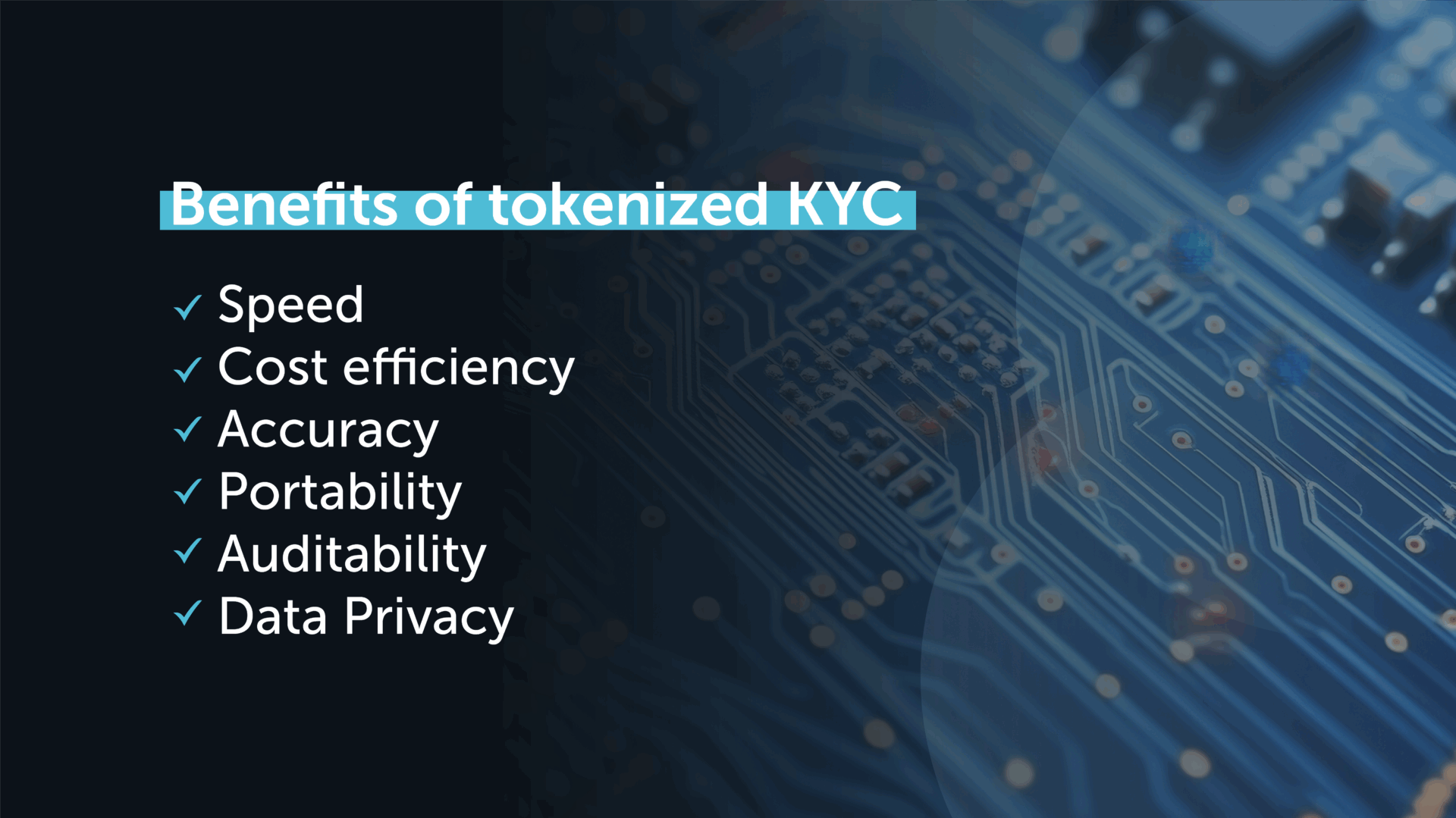Tokenized trust: Transforming corporate KYC with digital identity tokens

Know Your Customer (KYC) has long been a cornerstone of financial services. Yet it remains one of the industry’s most inefficient and frustrating processes especially for corporate clients.
Today, onboarding a new corporate customer typically involves repetitive document requests, manual verification, and delays. Beyond inconvenience, this introduces real regulatory risk, as outdated records and fragmented systems make it difficult to truly understand a corporate entity’s identity.
What if there were a better way?
Imagine if corporations could present a secure, digital credential. Similar to a passport – easily shareable and instantly verifiable across financial institutions. That is the promise of corporate digital identity tokens: tamper-proof, machine-readable credentials issued by trusted authorities, designed for reuse across multiple onboarding processes.
The growing KYC challenge
While retail customer onboarding has advanced through biometrics and mobile-first experiences, corporate KYC lags behind. Legal entity verification remains a manual, jurisdictionally fragmented process. Even once vetted, corporations must often repeat the same steps with each new bank or business unit. This results in:
- Duplicate effort and wasted resources
- Fragmented, outdated data
- Limited transparency around beneficial ownership
- Risk of onboarding illicit entities
- Inconsistent compliance across regions
For banks, the consequences are steep: rising compliance costs, operational inefficiencies, and potential regulatory penalties. For corporates, the onboarding journey becomes an unnecessary barrier to accessing financial services.
A new model: Corporate digital identity tokens
Emerging technologies such as decentralized identity (DID), verifiable credentials (VCs), and tokenization offer a solution. In this model:
- Issuers like corporate registries and tax authorities create cryptographically secure credentials
- Corporations hold these credentials in secure digital wallets
- Banks and financial institutions request and verify the credentials during onboarding
- A shared trust network ensures credentials are legitimate, up to date, and revocable if necessary
Credentials could include key attributes such as incorporation status, beneficial ownership declarations, regulatory licenses, and tax compliance information. Importantly, the data is tamper-proof, verifiable in real time, and under the corporation’s control, aligning with privacy standards and regulatory expectations.
Benefits of a tokenized KYC approach
Adopting corporate digital identity tokens delivers transformative benefits:
- Speed: Onboarding times could be cut from weeks to minutes
- Cost efficiency: Reduces manual document handling and duplicate verifications
- Accuracy: Minimizes the risks of outdated or falsified information
- Portability: Credentials can be reused across multiple banks and jurisdictions
- Transparency and Auditability: Every verification event is recorded and traceable
- Data Privacy: Corporates retain control, sharing only what’s necessary
These benefits not only drive operational efficiency but also create a more seamless, trusted experience for both banks and corporate clients.
Early movers: Real-world examples
This is no longer theoretical. Initiatives like Singapore’s MyInfo Business, the EU’s eIDAS 2.0 regulation, and the emerging ISO 23220 standards are laying the groundwork for digital corporate identity frameworks. Organizations such as the Global LEI Foundation (GLEIF) are exploring ways to integrate legal entity identifiers into digital credentials.
The opportunity now is to connect these building blocks into a cohesive, global framework – standardized, trusted, and scalable across financial services.
Implementation considerations
Adopting a tokenized KYC model will require solving important challenges, including:
- Governance frameworks for credential issuers
- GDPR-compliant data management
- Mechanisms for revocation and credential updates
- Regulatory acceptance of digital credential verification
Fortunately, solutions are already emerging. Current Corporate Digital Identity (CDI) solutions, including those from Encompass Corporation, provide comprehensive corporate profiles that are primed for tokenization. Subsequently offering a bridge between today’s systems and tomorrow’s vision.
Building a future of trusted corporate digital identity tokens
As financial crime grows more sophisticated and client expectations continue to rise, the current model for corporate KYC is no longer fit for purpose. Tokenized corporate digital identities offer a fresh and innovative path forward. One built on trust, speed, and transparency.
By reimagining identity as a dynamic, verifiable, and portable asset, we can create a financial system where corporations can onboard in minutes, and banks can focus on managing risk rather than chasing documents.
The future of KYC is tokenized – and the future starts now.
Discover corporate digital identity from Encompass